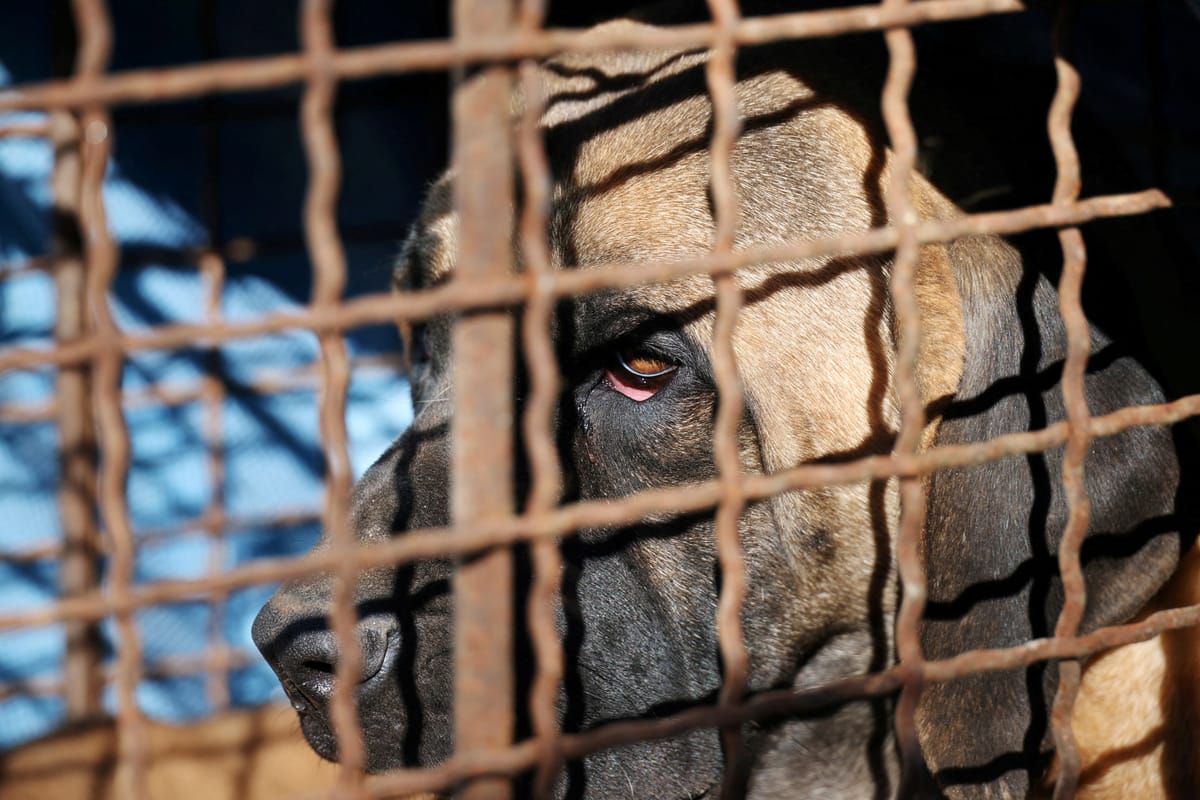South Korea bans the consumption of dog meat from 2027
On Tuesday, South Korea's Parliament passed landmark legislation to ban the country's dwindling dog meat industry.

A few minutes every morning is all you need.
Stay up to date on the world's Headlines and Human Stories. It's fun, it's factual, it's fluff-free.
Eating dog meat has been a centuries-old practice on the Korean Peninsula but has never been explicitly banned or legalized in South Korea. For example, bosintang is a soup that uses dog meat as its primary ingredient. Aside from being a thing in the countryside, it’s also seen by some Koreans as a way to beat the summer heat.
Dogs are also eaten in China, Vietnam, Indonesia and some African countries. But South Korea in particular has faced a lot of heat over the practice because of its status as a major, progressive economic hub and the fact that it’s the only country with industrial-scale dog farms.
While there aren’t any reliable stats on exactly how big this industry is, government data says that there are about 1,150 dog breeding farms, 34 slaughterhouses and around 1,600 restaurants that serve dog in South Korea.
While dog meat tends to be more popular among older generations, recent surveys have suggested that there has been growing support for a ban, especially among younger Koreans, with most South Koreans saying that they don’t eat dog meat. And while there have been efforts to try to ban it in the past, all have failed because of industry protests and worries for the farmers and restaurant owners.
On Tuesday, South Korea's Parliament passed landmark legislation to ban the country's dwindling dog meat industry. The bill also gives assistance to people in the industry for transitioning away from dog meat-related business, including a three-year grace period and financial support.
Dog farmers were upset by the bill’s passing, saying they plan to organize protests and challenge the bill’s constitutionality. “This is a clear case of state violence as they are infringing on our freedom to choose our occupation. We can’t just sit by idly,” said Son Won Hak, a farmer and former leader of a farmers’ association.
But the bill will become law after being endorsed by the Cabinet Council and signed by President Yoon Suk Yeol. It’s expected that the government will implement the ban quickly (sometime this year).
"It is time to put an end to social conflicts and controversies around dog meat consumption through the enactment of a special act to end it," said Yu Eui-dong, policy chief of the ruling People Power Party.




Comments ()